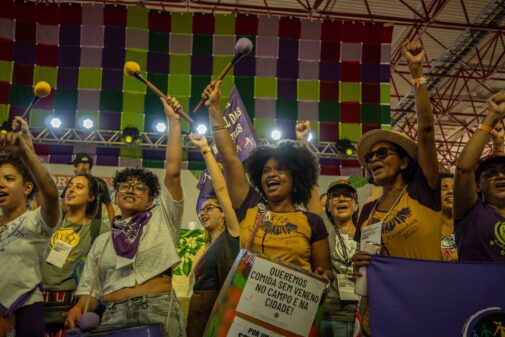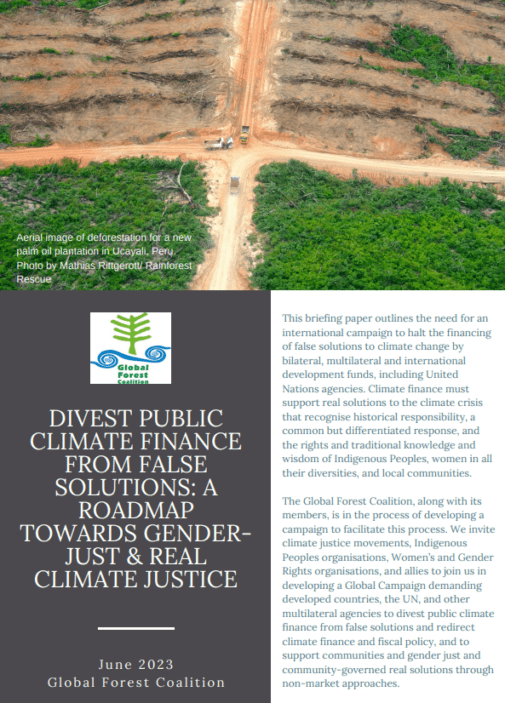Perspectives from the South: Stocktake on the Latin American and Caribbean Encounter of Peoples’ Integration
By Inés Franceschelli, GFC focal point for Latin American and Caribbean/ Centro de Estudios Heñói
29 February 2024 — On February 22 and 23, a powerful meeting of social activists, unions, progressive political parties, and peasant, Indigenous and environmental organizations took place at the Foz de Iguaçu Convention Center, in Brazil, with more than three thousand participants from hundreds of organizations joining to debate in the Latin American and Caribbean Encounter of Peoples’ Integration. Among them, several members of the Global Forest Coalition from the region added their voices to the clamour for a more just and supportive world, for the defence of women’s rights and non-normative sexualities, and denouncing the genocide of the Palestinian people perpetrated by Israel and the United States.

Neither the intense heat nor the logistical difficulties prevented the debate of all the economic, political, and cultural issues needed to strengthen regional popular integration in the face of the neoliberal offensive that is advancing in the region. This need for integration received several names: construction of regional citizenship, active and united struggle, and establishment of alliances, networks, and platforms. But beyond the names, all the speakers emphasized the urgency of strengthening ourselves to resist the recurrence of violence and to propose alternatives to the current crises.
What is there after neoliberalism? We must overcome the rationality of capitalism and the shamelessness of neo-fascism, which constitute a civilizational threat, and we must put life and humanity back at the centre.
The reflections and analyses placed special emphasis on the food crisis, the risks for water availability, and the search for environmental justice, highlighting that this system does not have the capacity to respond to the concrete demands of the working class. The destruction of forests, oil prospecting, and “green economies” are not necessities; they are activities that go against food security and sovereignty. Environmental groups agreed to put regional stress on the fight for food sovereignty and to build popular participation in unity towards the Climate COP 30, which will be held in Brazil in 2025.
Especially celebrated was the participation of Francia Márquez, Afro-descendant social leader and vice president of Colombia, who emphasized the need to decolonize the Latin American territory: “South America provides the cocoa and coffee, the north provides the seal and the price. This is unacceptable, and we will fight for this emancipation.” She called to eradicate the inequality, the fear, the anxiety in which our people live: “According to FAO, since 2019, hunger has grown by 30% in Latin America and the Caribbean, while this region is the global food pantry” and closed by calling for the sowing of “seeds of fight to achieve a united and peaceful Latin America.”
The final document of the meeting proposes an agenda to resume the path of regional cooperation based on six axes: 1) Democracy and regional integration with leading social participation; 2) Free movement, regional citizenship, and rights of migrants; 3) Work and rights for all, in these times of accelerated transformations; 4) Just transition and energy sovereignty for integration; 5) Food sovereignty, and 6) Confronting the climate crisis with environmental justice, considering that at the base of the climate, environmental and food crises is the model of death and inequality imposed by capitalism.








